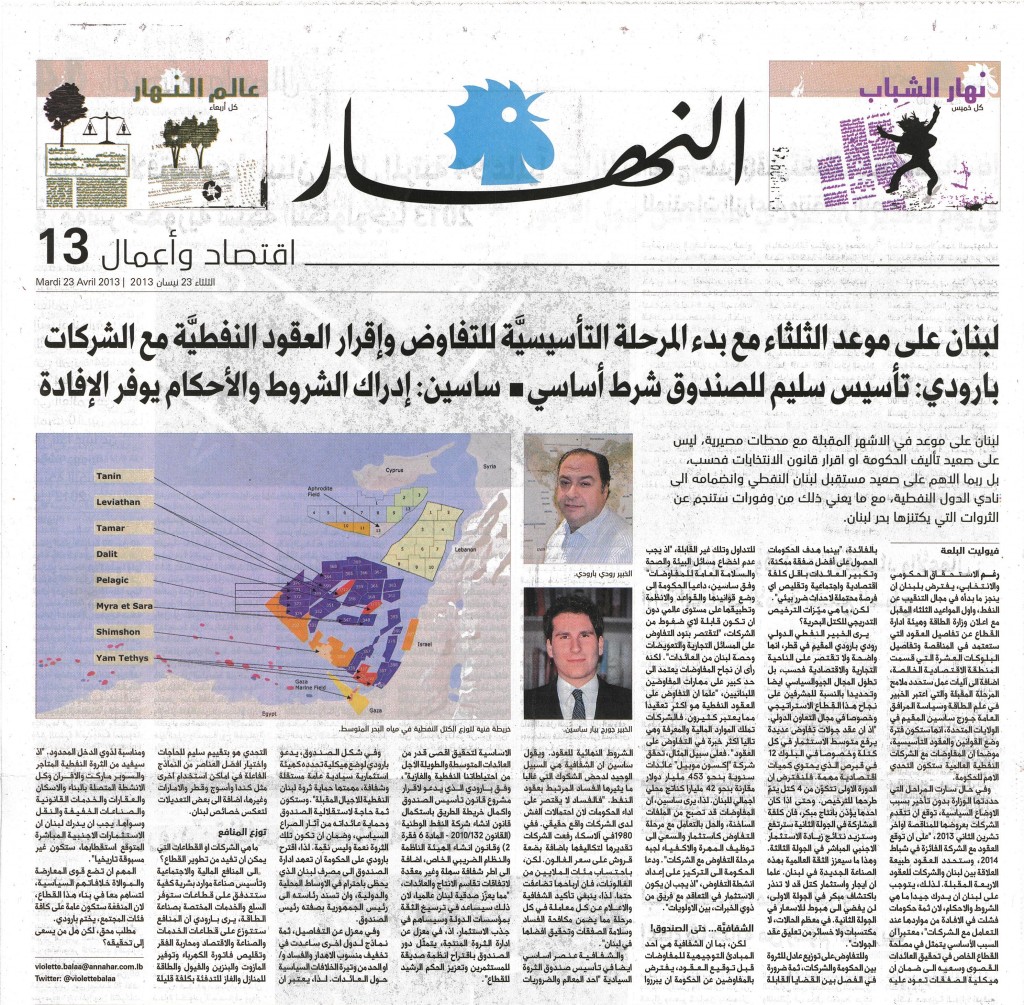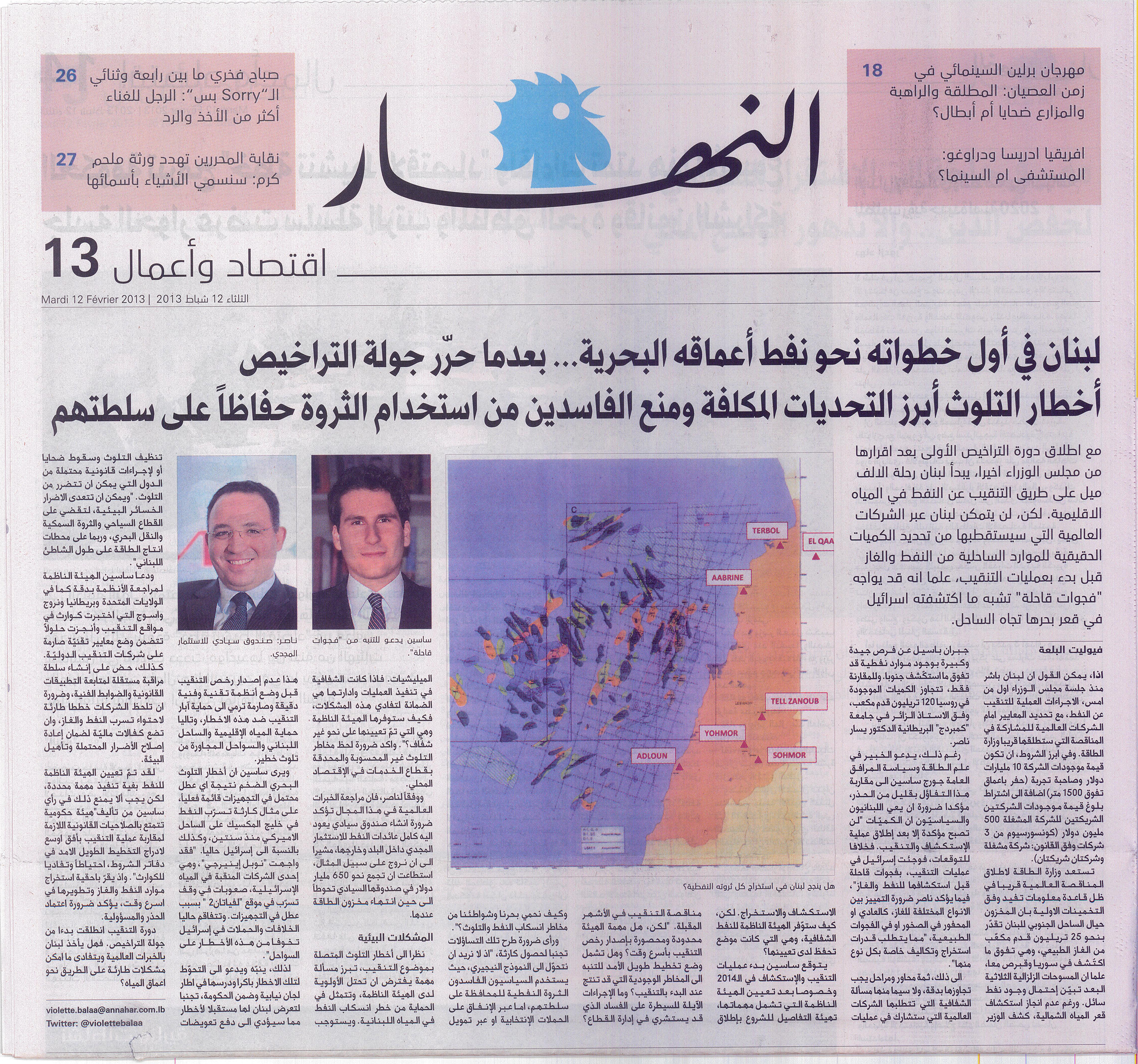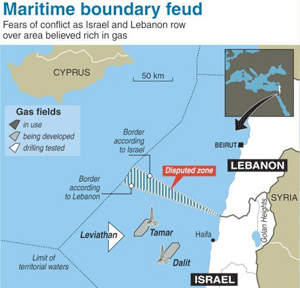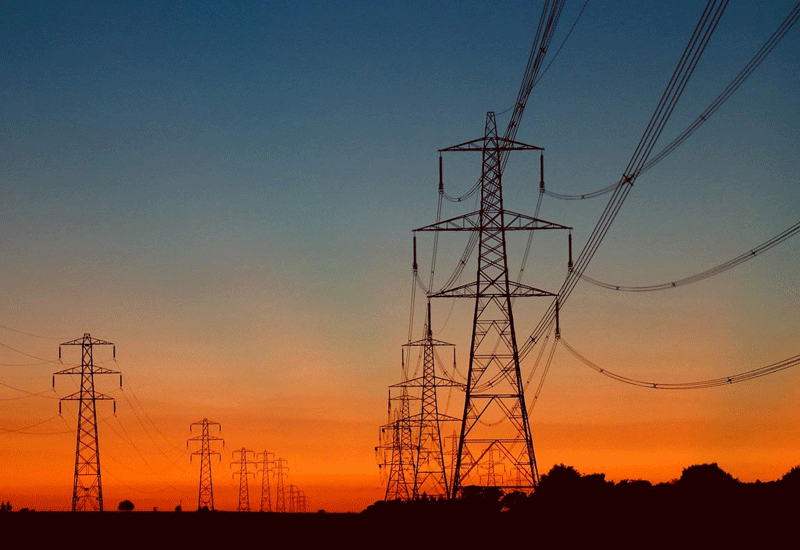LEBANON’S ELECTRICITY SECTOR BETWEEN REGULATION AND DECENTRALIZATION
By Georges Pierre Sassine
A version of this article appeared in the December 2012 print edition of Executive Magazine, on pages 78 & 80.
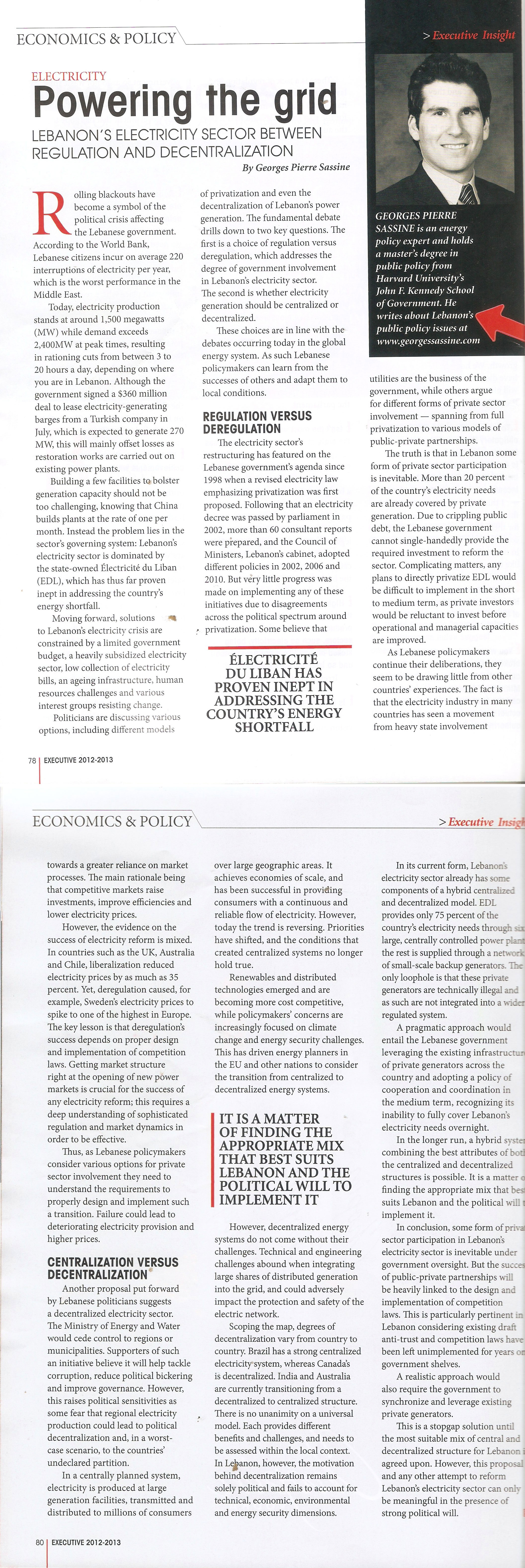 Rolling blackouts have become a symbol of the political crisis affecting the Lebanese government. According to the World Bank, Lebanese citizens incur on average 220 interruptions of electricity per year, which is the worst performance in the Middle East.
Rolling blackouts have become a symbol of the political crisis affecting the Lebanese government. According to the World Bank, Lebanese citizens incur on average 220 interruptions of electricity per year, which is the worst performance in the Middle East.
Today, electricity production stands at around 1,500 megawatts (MW) while demand exceeds 2,400 MW at peak times, resulting in rationing cuts from between 3 to 20 hours a day, depending on where you are in Lebanon. Although the government signed a $360 million deal to lease electricity-generating barges from a Turkish company in July, which is expected to generate 270 MW, this will mainly offset losses as restoration works are carried out on existing power plants.
Building a few facilities to bolster generation capacity should not be too challenging, knowing that China builds plants at the rate of one a month. Instead the problem lies in the sector’s governing system: Lebanon’s electricity sector is dominated by the state-owned Electricite du Liban (EDL), which has thus far proven inept in addressing the country’s energy shortfall.
Moving forward, solutions to Lebanon’s electricity crisis are constrained by a limited government budget, a heavily subsidized electricity sector, low collection of electricity bills, an ageing infrastructure, human resources challenges and various interest groups resisting change.
Politicians are discussing various options, including different models of privatization and even the decentralization of Lebanon’s power generation. The fundamental debate drills down to two key questions. The first is a choice of regulation versus deregulation, which addresses the degree of government involvement in Lebanon’s electricity sector. The second is whether electricity generation should be centralized or decentralized.
These choices are in line with the debates occurring today in the global energy system. As such Lebanese policymakers can learn from the successes of others and adapt them to local conditions.
REGULATION VERSUS DEREGULATION
The electricity sector’s restructuring has featured on the Lebanese government’s agenda since 1998 when a revised electricity law emphasizing privatization was first proposed. Following that an electricity decree was passed by parliament in 2002, more than 60 consultant reports were prepared, and the Council of Ministers, Lebanon’s cabinet, adopted different policies in 2002, 2006 and 2010. But very little progress was made on implementing any of these initiatives due to disagreements across the political spectrum around privatization. Some believe that utilities are the business of the government, while others argue for different forms of private sector involvement — spanning from full privatization to various models of public-private partnerships.
The success of electricity reform in other countries is mixed. Success depends on the design and implementation of competition laws.Georges Sassine
The truth is that in Lebanon some form of private sector participation is inevitable. More than 20 percent of the country’s electricity needs are already covered by private generation. Due to crippling public debt, the Lebanese government cannot single-handedly provide the required investment to reform the sector. Complicating matters, any plans to directly privatize EDL would be difficult to implement in the short to medium term, as private investors would be reluctant to invest before operational and managerial capacities are improved.
As Lebanese policymakers continue their deliberations, they seem to be drawing little from other countries’ experiences. The fact is that the electricity industry in many countries has seen a movement from heavy state involvement towards a greater reliance on market processes. The main rationale being that competitive markets raise investments, improve efficiencies and lower electricity prices.
However, the evidence on the success of electricity reform is mixed. In countries such as the UK, Australia and Chile, liberalization reduced electricity prices by as much as 35 percent. Yet, deregulation caused, for example, Sweden’s electricity prices to spike to one of the highest in Europe. The key lesson is that deregulation’s success depends on proper design and implementation of competition laws. Getting market structure right at the opening of new power markets is crucial for the success of any electricity reform; this requires a deep understanding of sophisticated regulation and market dynamics in order to be effective.
Thus, as Lebanese policymakers consider various options for private sector involvement they need to understand the requirements to properly design and implement such a transition. Failure could lead to deteriorating electricity provision and higher prices.
CENTRALIZATION VERSUS DECENTRALIZATION
Another proposal put forward by Lebanese politicians suggests a decentralized electricity sector. The Ministry of Energy and Water would cede control to regions or municipalities. Supporters of such an initiative believe it will help tackle corruption, reduce political bickering and improve governance. However, this raises political sensitivities as some fear that regional electricity production could lead to political decentralization and, in a worst-case scenario, to the countries’ undeclared partition.
A hybrid centralized and decentralized system is possible. It is a matter of finding the appropriate mix that best suits Lebanon and the political will to implement it.Georges Sassine
In a centrally planned system, electricity is produced at large generation facilities, transmitted and distributed to millions of consumers over large geographic areas. It achieves economies of scale, and has been successful in providing consumers with a continuous and reliable flow of electricity. However, today the trend is reversing. Priorities have shifted, and the conditions that created centralized systems no longer hold true.
Renewables and distributed technologies emerged and are becoming more cost competitive, while policymakers’ concerns are increasingly focused on climate change and energy security challenges. This has driven energy planners in the EU and other nations to consider the transition from centralized to decentralized energy systems.
However, decentralized energy systems do not come without their challenges. Technical and engineering challenges abound when integrating large shares of distributed generation into the grid, and could adversely impact the protection and safety of the electric network.
Scoping the map, degrees of decentralization vary from country to country. Brazil has a strong centralized electricity system, whereas Canada’s is decentralized. India and Australia are currently transitioning from a decentralized to centralized structure. There is no unanimity on a universal model. Each provides different benefits and challenges, and needs to be assessed within the local context. In Lebanon, however, the motivation behind decentralization remains solely political and fails to account for technical, economic, environmental and energy security dimensions.
In its current form, Lebanon’s electricity sector already has some components of a hybrid centralized and decentralized model. EDL provides only 75 percent of the country’s electricity needs through six large, centrally controlled power plants; the rest is supplied through a network of small-scale backup generators. The only loophole is that these private generators are technically illegal and as such are not integrated into a wider regulated system.
A pragmatic approach would entail the Lebanese government leveraging the existing infrastructure of private generators across the country and adopting a policy of cooperation and coordination in the medium term, recognizing its inability to fully cover Lebanon’s electricity needs overnight.
In the longer run, a hybrid system combining the best attributes of both the centralized and decentralized structures is possible. It is a matter of finding the appropriate mix that best suits Lebanon and the political will to implement it.
In conclusion, some form of private sector participation in Lebanon’s electricity sector is inevitable under government oversight. But the success of public-private partnerships will be heavily linked to the design and implementation of competition laws. This is particularly pertinent in Lebanon considering existing draft anti-trust and competition laws have been left unimplemented for years on government shelves.
A realistic approach would also require the government to synchronize and leverage existing private generators. This is a stopgap solution until the most suitable mix of central and decentralized structure for Lebanon is agreed upon. However, this proposal and any other attempt to reform Lebanon’s electricity sector can only be meaningful in the presence of strong political will.
Georges Pierre Sassine is an energy policy expert and holds a master’s degree in public policy from Harvard University’s John F. Kennedy School of Government. He writes about Lebanon’s public policy issues at www.georgessassine.com
A version of this article appeared in the December 2012 print edition of Executive Magazine, on pages 78 & 80.
(Executive Magazine: a leading business, economics and policy magazine in Lebanon and the Middle East)

